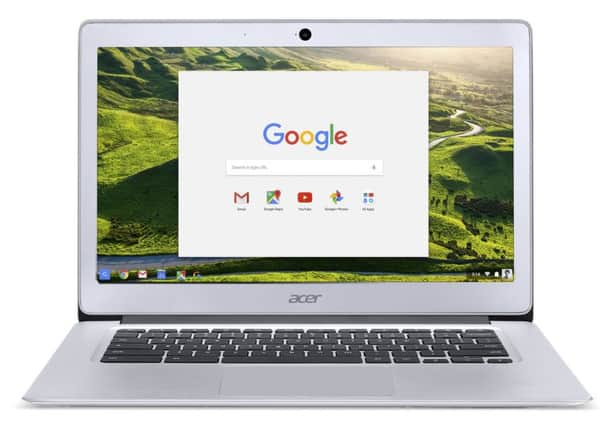Is a Chromebook better than a Windows laptop for the new term?


Children hate it when the threat of going back to class is allowed to encroach on their summer - but nevertheless, prudent parents and grandparents will be scanning the shelves around now for a few term-time essentials.
Apart from clothes and stationery, laptops are now at the top of many wish lists, especially among families with more senior students. These have been overtaken by tablets in the desirability stakes, which is not entirely a bad thing; those bought for educational purposes are more likely to be used as intended, not for playing games.
Advertisement
Hide AdAdvertisement
Hide AdThat being the case, it is worth considering a wide range of models before buying, and that means those that don’t run Windows as well as those that do.
A new Windows computer, laptop or otherwise, is nearly always a disappointment, simply because once you’ve finished tweaking it to your liking, it’s going to be almost identical to the one you had before. After a few weeks it will stop responding as quickly as it used to and you will wonder why you bothered changing it.
A Chromebook, on the other hand, is a whole new experience. Chromebooks use Google’s Chrome operating system, which means you can’t run specialist PC programs like Photoshop but you can nevertheless accomplish most of the usual tasks - including music streaming and all the social media management that a young person will expect from any device.
Chromebooks work on the principle that you will store your work in the cloud, not on the laptop itself. That means your files are simultaneously available on your phone and other devices, and they update automatically. If your new laptop is going to be used by a student who also wants to access work on a school or college PC, this could be an ideal arrangement. There is no worry about having to synchronise one device to another, or of accidentally losing any work - although a reliable wifi connection is essential.
Advertisement
Hide AdAdvertisement
Hide AdChromebooks, like Windows laptops, come in many configurations and at various price points, but you don’t need to spend more than around £200 to get one that is adequate for student use.
For this, you can expect an 11in screen, a simple Intel Celeron processor, 2GB of memory and 16GB of storage - a similar amount to your phone. This would be woefully inadequate on a Windows machine, but because Chromebook apps tend to be web-based, less processing power is required. Another £50 will get you double the storage and memory, and for around £320 you can have a gimmicky one with a touchscreen that flips over to double as a tablet.
Not every student will be content with a Chromebook, and for those, the range of Windows alternatives is as big as ever. Most at the lower end of the market come with 4GB of memory, which is the least you should consider. An 8GB model is a better bet and you can find machines with 15in screens and processors by Intel’s rival, AMD, for slightly less than £300.
Given the distinct possibility that any device you choose will be lost, stolen or dropped before the school year is out, there is not a lot of point spending much more.